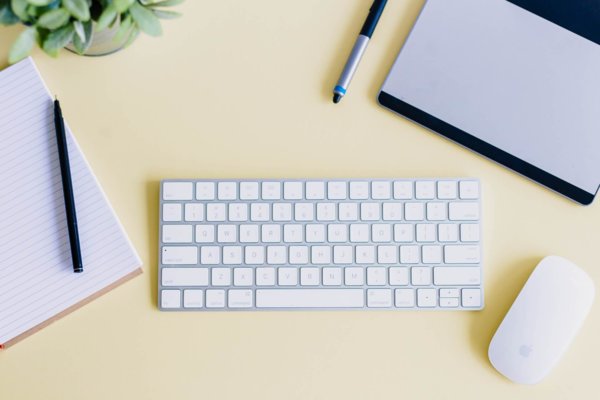How To Be Financially Literate: 7 Easy Ways
To get by or even thrive in this society, everyone needs to be financially literate.
This basically means that you have a basic understanding of personal finances, and a good grasp of the value of your money and what you could, or perhaps should, be doing with it.
Once you know the basics of personal finance, you can make smart choices with your money, and be fully self-sufficient.
You can gain control over your finances, eliminate debt, and prepare for your future.
Unfortunately, no-one is born financially literate, and it’s not always something you learn in school.
This means it’s often down to each individual to become financially literate and boss their finances.
Also read: How To Calculate Retained Earnings?

Areas Of Financial Literacy
Here are some of the key areas of financial literacy:
Setting financial goals
Budgeting your money
Paying bills and building savings
Understanding your credit score
Understanding loans and mortgages
Understanding credit and store cards
Investing, the stock market and your 401k
Ways To Become Financially Literate
Read Up
I thought we’d get the most obvious way out of the way first. Hitting the books.
The good news is that there are some great books out there dedicated to teaching personal finance and help you to manage your finances well.
And they’re not all dry and humdrum, some of them are very lively and particularly easy to understand.
You should check out my other article titled “10 Superb Books On Financial Literacy”.
And books are not the only source of reading material. You can also check out online publications and magazines. Or even those much overlooked government resources that you can access on the Treasury website.
Also read: How To Apply For A Ppp Loan - The Full Guide

Listen Well
If you’re not one for reading books or other materials, that’s not your only option.
At the moment, there are some really good podcasts you can listen to on personal finances and general money matters.
Podcasts are super convenient because these days you can listen to them just about anywhere. You can stream them when they’re live, or you can download them and listen to them at your convenience, whether on your commute, at the gym, while you cook, or whatever.
These are some of my favorite podcasts on money matters:
BiggerPockets Money Podcast
Afford Anything
How To Money
ChooseFI
The Financial Confessions
DIY Money
Ditch The Suits
Also read: Get The Insights - How To Get A Business Loan With No Sweats!
Brush Up On Your Math
If it’s been a while since you studied math, it may be worth you revisiting it for a short spell.
When you need to know what the APR rate is on your loan, you’re also going to want to know what this means in real terms, so you can work out how much you’d have to pay, and suss out whether it really is a good idea.
And the same goes for interest rates on your savings and investments, and anything you’re thinking of buying on finance, such as boilers, furniture, or cars.
Math is also handy for working out whether to take advantage of paying in installment options, or if it’s actually a bad idea in the long haul.
Take A Course
You could easily argue that a course in personal finance and money management is more important than just about anything else you may have studied in school.
And to be perfectly honest with you, money spent on a course on financial literacy would be money well spent, a return on your investment so to speak.
And the knowledge and skills you can develop through it will probably stay with you much better than if you were to simply rely on reading it up in books.
Better yet, if you have a little look on Google you may even find some courses on the subject that are available free of charge.
Also read: The 8 Amazing Passive Income Ideas With Little Money
Use Financial Management Tools
If all else fails, you can always let the tech do the hard work for you. There are some great online tools and apps you can use to do all the hard work for you, and all you have to do is decide when you want to receive alerts and so forth.
There’s You Need A Budget, or YNAB, if you want to learn to plan your spending ahead of time. Or there’s Honeydue, for couples who live together but want to keep their own money while also meeting financial goals and paying bills together.

Join Personal Finance Communities And Forums
There’s never been a better time to get a person’s opinion or viewpoint free of charge. There are loads of online communities and forums such as Quora, Twitter, and Reddit, where you can pose any question you like and often get some really good answers, often from real life experts, or people who have experience in such matters.
Also read: 8 Personal Finance Apps For Your Better Future
Break Free Of The Toxic Consumer Mentality
Last, but not least, if you feel like you should have the same expensive things as your wealthier friends, you should really nip it in the bud, right here, right now.
It’s an attitude that will do you no favors, and no friend worth their salt is going to care whether your fitness tracker is a budget one or actually a top of the range Apple Watch.
Or what car you drive, for that matter. Does it get you from A to B? That’s what counts. Status symbols don’t pay the bills, unless you’re the one leasing them.
You don’t need a Gucci purse to prove that you’re a woman of substance.
It’s being frugal that pays in the long run.
Wrap Up
So, there are several things out there to help you get a leg up on your financial literacy. There’s a method out there for everybody.
Even if you don’t want to hit the books, you can become financially literate in virtually no time at all.
Once you know your stuff, you can get behind the wheel of your finances and can go to who knows where!
Once you decide to take that first fateful step, everything should start falling into place. All the best!
Your pay stubs will be a great resource to find out figures needed to calculate net income etc.
 Our customer support is available 24/7:
Our customer support is available 24/7:

